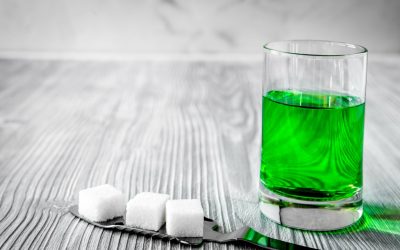Children of parents who misuse alcohol are at higher risk for anxiety, depression, and unexplained physical symptoms (internalizing behaviors). They are also more likely to display rule-breaking, aggressiveness, and impulsivity (externalizing behaviors) in childhood. There are several issues relevant to the effects of trauma on a child in these types of households. The most critical factors include the age of the child, the duration of the trauma during development, and the ability of the child to have support within the family or from an outside source. Because as a child life felt out of control and unpredictable, as an adult you try to control everyone and everything that feels out of control (which is a lot).
- These types of trends weren’t found in people without substance use disorders.
- While these studies test the effects of parent drinking on expectancies, only one recent study has attempted to look at mechanisms of this association.
- Children of alcoholics are more likely to have low self-esteem, difficulty with relationships, and unresolved trauma that can lead to self-medicating behaviors.
Trauma Symptoms of Adult Children of Alcoholics
- Then a flip-flop often occurs as parents overindulge out of compensation or out of guilt.
- Open communication complements these emotional ties by fostering an environment where children feel safe to express their thoughts and concerns.
While some children of alcoholics may go on to avoid alcohol altogether, others may develop problematic drinking habits. CPTSD Foundation supports clients’ therapeutic work toward healing and trauma recovery. By participating in our programs, members acknowledge and agree to seek professional medical and mental health care and understand that our programs provide only trauma-informed peer support. Also, one must not forget that seeking out professional therapy from a counselor or therapist effects of having an alcoholic parent can help incredibly. In therapy, one might discover a great deal about oneself in overcoming the side-effects of growing up with an alcoholic parent.
Terms

These can include experimenting with alcohol or drugs at an earlier age, engaging in reckless behavior, skipping school, engaging in unsafe sexual activity, or getting into physical fights. Breaking the cycle doesn’t mean forgetting the past; it means transforming pain into resilience. With the right tools and support systems, adult children of alcoholics can rise above the legacy of addiction and create a future defined by strength, self-awareness, and hope. In some cases, drinking becomes a misguided attempt to empathize with or better understand their alcoholic parents’ behavior. Children raised in households where alcohol dependency is normalized often grow up believing that excessive drinking is a typical coping mechanism. These exposure conditions cause them to Substance abuse view substance use as acceptable or even necessary, increasing the likelihood that they will develop unhealthy relationships with alcohol later in life.
Risk of Developing Alcohol Use Disorder
- Problem drinking by parents may influence role-modeling behaviors, parenting skills, and marital and family relations, all of which may contribute to a host of problematic outcomes for adolescents.
- Ensure that the child feels safe and secure, and that their needs are being met.
- Open conversations about substance abuse, approached with sensitivity, help children understand and express their feelings.
The participants were enrolled in a psycho-educational program in the 1990s for youngsters living with parents who struggled with alcohol (these data were part of a longitudinal https://ptecmokama.in/10-celebrity-alcoholics-who-drank-themselves-to-3/ study). Addiction in the family has long-lasting effects and although parents in recovery cannot erase the past, they can work toward a better future. Call Nova Recovery Center today if you are ready to start over and build a healthy life of sobriety for yourself and for the benefit of your children. Therapy, support groups, and a strong social system can make ACOAs open up and make peace with their emotions, break unhealthy patterns, and build emotionally fulfilling lives. Children of alcoholic parents have had to take up caring for their parents and younger siblings far before any child has to. This continues even during adulthood, where they care for others at the behest of their own sense of safety and well-being.

The Long-Term Effects of Alcoholism in Adulthood (ACoAs)

Children of a parent with AUD may find themselves thinking they are different from other people and therefore not good enough. Consequently, they may avoid social situations, have difficulty making friends, and isolate themselves. The most popular is probably theLaundry Listfrom Adult Children of Alcoholics World Service Organization. Groups like Al-Anon and ACA (Adult Children of Alcoholics) provide free support and recovery.
